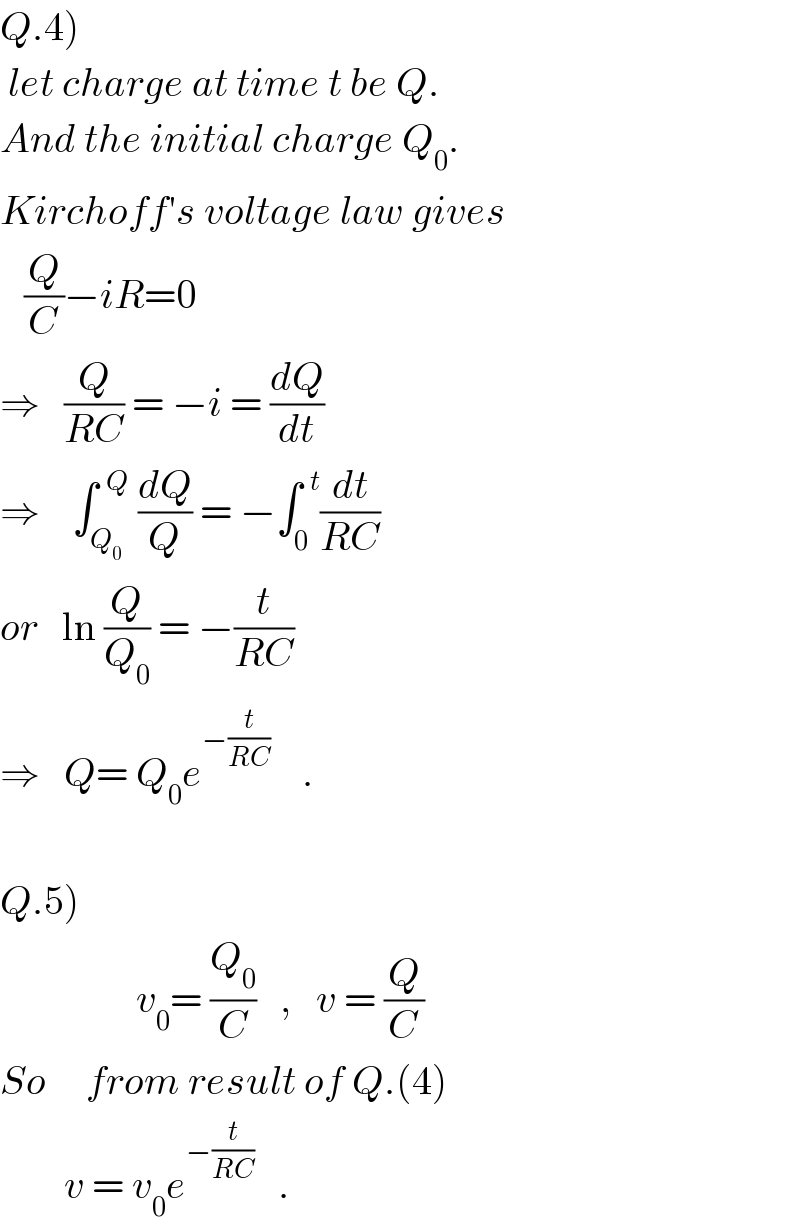
Question and Answers Forum
Question Number 29209 by tawa tawa last updated on 05/Feb/18

Commented by tawa tawa last updated on 05/Feb/18

Commented by ajfour last updated on 05/Feb/18

Commented by ajfour last updated on 05/Feb/18

Commented by tawa tawa last updated on 05/Feb/18

Answered by ajfour last updated on 05/Feb/18
![Q.6) ((Ldi)/dt)+iR = Ecos ωt ⇒ (di/dt) +((iR)/L) = (E/L)cos ωt integrating factor for the linear differential equation is e^(∫(R/L)dt) =e^(Rt/L) so i(e^(Rt/L) )=(E/L)∫e^(Rt/L) cos ωt =(E/L)[(((sin ωt)/ω))e^(Rt/L) −(R/(ωL))∫e^(Rt/L) sin ωtdt ]+c =(E/L){((e^(Rt/L) sin ωt)/ω)−(R/(ωL))[−((e^(Rt/L) cos ωt)/ω)+(R/(ωL))∫e^(Rt/L) cos ωtdt ]}+c_1 =(E/L){((e^(Rt/L) sin ωt)/ω)−(R/(ωL))[−((e^(Rt/L) cos ωt)/ω)+(R/(ωL))×(L/E)(ie^(Rt/L) )]}+c_1 ⇒ i(e^(Rt/L) )[1+(R^2 /(ω^2 L^2 ))]=(E/(ωL))(e^(Rt/L) )[sin ωt+(R/(ωL))cos ωt]+c_1 ⇒ i = (E/(𝛚^2 L^2 +R^2 ))(𝛚Lsin 𝛚t+Rcos 𝛚t)+c_2 e^(−Rt/L) if i=0 at t=0 0=((ER)/(ω^2 L^2 +R^2 ))+c_2 ⇒ i=(E/(ω^2 L^2 +R^2 ))(ωLsin ωt+Rcos ωt−Re^(−Rt/L) ) .](Q29223.png)
Commented by tawa tawa last updated on 05/Feb/18

